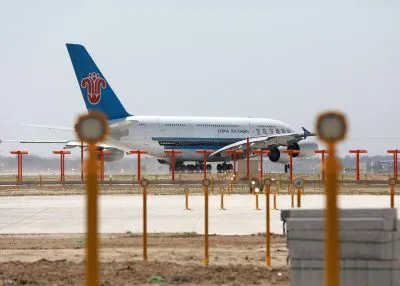Free flow of information
Capitalism is not just the exchange of money. The free flow of information is crucial also. Africans, for so long cut off from the wider world, are connecting via the internet and mobile networks more rapidly than anyone else in the world. Farmers with antiquated machinery now have cellphones, which plug them into foreign markets, and bring other benefits associated with an end to isolation.
Greater connectivity has led to increased openness. The liberalisation of economies which has forced political regimes to relinquish control of the flow of money has seen a notable shift in power from the privileged political elite toward the general population.
Democracy and stability, so often denied the people of Africa, are now recognised as being essential to a strong economy. It still astonishes many in the West to think of Rwanda, for instance, as a stable and functioning democracy with a growing economy that has attracted admiring glances from the most influential business leaders in the world and envious looks from the people of countries with far less troubled recent histories.
Africa’s economies are being capitalised partly through the tripling of the number stock markets operating in the last 20 years. Stock markets are an enticing way to raise capital as you are not borrowing from a private company at expensive rates of interest. A company can make millions or even billions of dollars which it may then invest in itself.
Stock exchanges are expensive to run, though, and many institutional flaws in Africa need to be corrected if they are to contribute to economic growth the way they have the potential to.
Weak or absent laws and regulations may lead to the type of unbridled speculation that led to the 2008 banking collapse but it does not have to be that way. If done properly, the World Bank, IMF and other policy makers recognise the importance of a healthy stock market in the growth of an economy.
The potential rewards of capitalism have been forcing change in Africa as the older way of doing things has become increasingly expensive and unsustainable.
The transformation of former Third World countries into economic powerhouses with a voice on the world stage previously denied them has not been lost on Africa’s political and business leaders who do not wish to be even more irrelevant in the world at exactly the time when they have the opportunity to take their place alongside China, India, Brazil and Turkey.
Political stability is still fragile in countries such as South Sudan, DRC, Somalia and Central African Republic but no matter how tentative, the benefits have been marked and almost instant. The fight against corruption is no longer little more than token gesture but more and more a genuine attempt to change an out-dated business model to one more attractive to investment. Government ministries and departments are more likely now than ever before to be staffed by former bankers, economists and academics as, again, the lure of capitalism as a tool for change proves more potent than any other idea before it.
Building from the bottom up
Not all capitalist stories have happy endings, of course. Part of the advantage the developing world has enjoyed recently is down to the fact that traditional markets resemble post-apocalyptic landscapes more than shining icons of wealth and power these days.
It might well be that once capitalism has succeeded in transforming a society, lifted the majority out of poverty, improved the health of the population and expanded the middle classes, that society needs to take stock and look for ways to consolidate its new found abundance before it is squandered.
That, though, is decades away for much of Africa. The most immediate concern for Africa is the increasing tendency of Western governments to become more protectionist and to put up trade barriers as a response to the economic crisis they are still mired in.
However, the first signs of recovery are being seen in the world’s major economies, and it is reasonable to hope that the first knee-jerk reaction to the crisis will give way to a broader, more long-term view of the world’s economy. Not least of all because failing countries are havens for extremism and the world has seen to its cost where that can lead.
The challenge for the countries of the continent is to make sure progress is distributed fairly. That while the rich get richer and the gap between the extremely wealthy and the very poor will widen, that even those with the least have access to healthcare, education and a dignified standard of living.
The opportunity to learn from the mistakes and excesses of the form of capitalism adopted in the West is too good to waste. There is an idea among African economists and policy makers that is taking hold which proposes to do exactly that. To take the best of capitalism and to use it as a tool for positive societal change, instead of any good that comes from it being a serendipitous spin-off.
Aside from giving rise to cumbersome labels, such as Africapitalism and Philanthrocapitalism, the idea of using the capitalist model to benefit African society is based on the basic principle that Africans are now ready and able to take control of their own destinies, to stop relying on foreign aid, which creates the perception of them as perpetual victims, and to develop long-term investment strategies to build up the private sector and much needed infrastructure.
This African version of capitalism focuses on local development. That is, the idea that economies are built from the bottom up and that investment is best directed by those who know exactly what their problems are and how they need solving. In this way, proponents say, social progress and profits will drive each other.
One such champion of the idea is former banker from Nigeria, Tony Elumelu. He sees the role of the government as, effectively not getting in the way of the private sector; of creating a business environment that allows entrepreneurship to flourish.
The idea hangs on the notion that making money and doing good can be dependent on each other. There are, though, many examples of what the private sector will do in pursuit of profit if they know they can get away with it, and it is usually not necessarily something good.
However, while one may consider it naive to believe a capitalist model can have a social conscience, there are others who would say it is just as naive to labour under the misconception that the private sector can survive in the long term if it does not.
The suspicion is that such an idea of capitalism is a desperate attempt to rebrand itself in the eyes of the public and to fend of the increasingly loud demands for greater regulation. Whether this is true or not, even those who are the most cynical about capitalism live in societies, though considerably poorer than they were five years ago, still allow them to live longer and more comfortably than those in societies capitalism has yet to touch.
It is also undeniably that where African entrepreneurs have access to capital, local-level issues are tackled, poverty is alleviated and the disaffected are empowered. Moreover, even if Africa adopts the Western capitalist model, like for like, with all its flaws and ticking time bombs, there are those in Africa who would swap their problems for those now besetting the economies that had previously enjoyed three decades of runaway success.
Knowing, however, that capitalism is not a never-ending funfair ride, Africans looking to turn their continent into a growing, dynamic and healthy collection of democracies, see no reason why they cannot learn from the mistakes caused by the hubris of others. Its starting position will make it easier for it to do so than it will be for economies with more established systems to change.
Want to continue reading? Subscribe today.
You've read all your free articles for this month! Subscribe now to enjoy full access to our content.
Digital Monthly
£8.00 / month
Receive full unlimited access to our articles, opinions, podcasts and more.
Digital Yearly
£70.00 / year
Our best value offer - save £26 and gain access to all of our digital content for an entire year!

 Sign in with Google
Sign in with Google 





